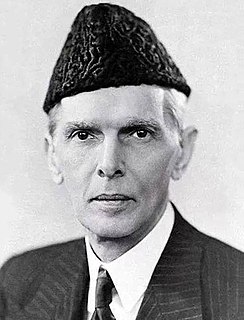A Quote by Noam Chomsky
Balochistan, and to some extent Sindh too, has a general feeling that they are not part of the decision-making process in Pakistan and are ruled by a Punjabi dictatorship. There is a lot of exploitation of the rich resources [in Balochistan] which the locals are not gaining from. As long as this goes on, it is going to keep providing grounds for serious uprisings and insurgencies.
Related Quotes
I usually know the general emotion of a song, or the general feeling of it, and then I think I just get so excited by the act of recording. I love that process so much that I feel like if I knew exactly what I wanted I'd arrive at something too soon. Part of the reason I work on stuff for so long is just because I love working on it. It's not that I'm haunted by some ghost sound. I just have nothing else to do with my life. Some people like to obsessively shop online. I like to obsessively rack up studio bills.
Pakistan is not going to be a theocratic State - to be ruled by priests with a divine mission. We have many non-Muslims - Hindus, Christians, and Parsis - but they are all Pakistanis. They will enjoy the same rights and privileges as any other citizens and will play their rightful part in the affairs of Pakistan.
I wouldn't call it naive but silly. History does not work like this. If you look at the dynamics of Eastern Europe or even Germany post reunification, you realize that change takes time. No one can deny the fact that we are still not there - I am advocating something which has to go from uprisings to revolutions. It is not coming straight away that it is not going to come but what we have to advocate is that the democratization process is always better than state dictatorship.
The constant drive for campaign dollars has distorted decision-making in Washington, DC, to the point where our systems can no longer effectively address complex, long-term problems like the climate crisis. Which brings me to my other major concern - the short-term focus of capitalism. It distorts the allocation of resources and the decision-making processes of companies.
The presidency of the United States is a very unique elected position. So if anything merits a longer vetting process, the presidency does to some extent. In general our election cycles are too long, but this job is so consequential that I don't think it's a bad thing to give people more time to get to know you.
Having serious consequences to your decision-making process is something you have to be very comfortable with. It's something you learn and you practise over time, so I encourage people to find some way to challenge themselves. The other thing I share with people, which I've learned over time, is self-confidence. You have to get very comfortable with saying, "Well, every day, I'm just going to give my best. I have skill sets I've learned, I'm going to employ them, and my best is going to be good enough".
India had barely become independent, in 1947, when Pakistan invaded Kashmir, which at the time was ruled by a maharajah. The maharajah fled, and the people of Kashmir, led by Sheikh Abdullah, asked for Indian help. Lord [Louis] Mountbatten, who was still governor general, replied that he wouldn't be able to supply aid to Kashmir unless Pakistan declared war, and he didn't seem bothered by the fact that the Pakistanis were slaughtering the population.
The global warming is going on. These are not single cases. These are all part of a general way we've been looking at the world. As long as we look at the world that way it's going to go on. Because the idea that the important thing is for some people get rich while the rest of the people work for them is very deeply dug in...






































